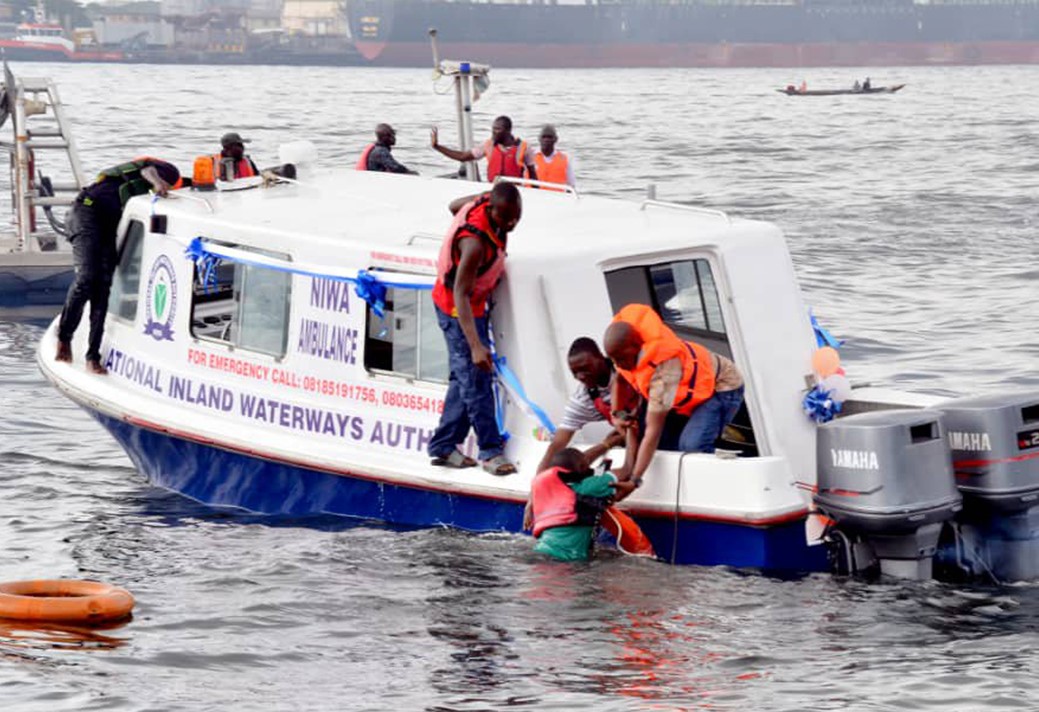The Supreme Court has held that the control of activities on the nation’s inland waterways, including levying and licensing operators in the sector, belongs solely to the federal government.
The apex court, in a judgment on Friday, January 5, held that it was wrong for states to seek to control the sector and impose levies on businesses operating in the nation’s inland waterways.
The Supreme Court held that existing laws give exclusive control of activities in the nation’s inland waterways to the FG through its agencies—the National Inland Waterways Authority (NIWA) and the Nigerian Maritime Standard and Safety Agency (NMSSA)—and no other tier of government.
The judgment, authored by Justice John Okoro, but read on Friday by Justice Emmanuel Agim, was on the appeal marked SC/CV/17/2018, filed by the NIWA, NMSSA, the Minister of Mines and Steel Development, and the Minister of Transport.
Respondents to the appeal were the Lagos State Waterways, the state’s Commissioner for Waterfront Infrastructure Development, the state’s Attorney General, the Governor of Lagos State, the Incorporated Trustees of the Association of Tourist Boat Operators and Water Transportation of Nigeria (ATBOWTN) and the Incorporated Trustees of Dredgers Association of Nigeria (DAN).
The appeal filed in 2018 was prosecuted for the appellants by a team of lawyers led by Lateef Fagbemi (SAN), who was recently appointed as the Attorney General of the Federation (AGF) and Minister of Justice.
The Supreme Court agreed with the appellants’ argument that NIWA is the only agency saddled with the responsibility to levy, impose and charge rates of utilization along the declared waters of Nigerian Inland Waterways.
It added that NIWA is the rightful and legal agency of the Federal Government with the powers to exclusively manage, direct, and control all activities on the navigable waters and its right of way throughout the country for the purpose of inland navigation, pursuant to Sections 8 and 9 of the NIWA Act.
The apex court equally agreed with the appellants that the activities of the Lagos government and its agencies constitute a flagrant usurpation and an illegal encroachment on the statutory functions of NIWA because the waterways of Lagos State, among others in Nigeria, fall under the Exclusive Legislative List set out in Part 1 of the Second Schedule to the 1999 Constitution.
It held that it is only the Federal Government, through the National Assembly, that can validly legislate on maritime shipping and navigation, adding that the power to legislate on any subject in the Exclusive Legislative List does not lie with the Lagos State Government.
The appellants had also argued that the activities of the Lagos State Waterways Authority (LASWA) created by the Lagos Government, though the enactment of LASWA Law No. 14 of 2008 (LASWA 2008) by the state’s House of Assembly, to regulate, develop, and manage all aspects of the waterways in Lagos State, are unconstitutional.
The apex court noted that existing laws do not favour Lagos government’s arguments on resource control, but that political stakeholders, including the Legislature, could work on ways to amend the law to address the concern raised by Lagos and others on the issue.
The Supreme Court restored the judgment delivered on March 28, 2014, by Justice John Tsoho of the Federal High Court in Lagos and reversed the July 18, 2017 judgment of the Court of Appeal (Lagos division), which set aside the Federal High Court judgment.
The Court of Appeal had, among others, held that the inland waterways within Lagos State, not captured by the National Inland Waterways Act, are within the legislative competence of the state’s legislature and that the state could collect taxes and levies on businesses on waterways that start and terminate in the state.
Confronted with a regime of multiple charges by the agencies of both the FG and Lagos governments, ATBOWTN and DAN in 2012 filed a suit, marked FHC/L/CS/543/2012 at the Federal High Court, Lagos, to determine which tier of government was empowered by extant laws to license and levy business operators on the nation’s inland waterways.
In his judgment on the case, Justice Tsoho held among others, that NIWA and NMSSA are the proper and lawful agencies with authority in matters relating to the commercial activities of ATBOWTN and DAN, who are involved in water tourism, water transportation, and sand dredging within the national inland waterways.
Justice Tsoho restrained the Lagos State Waterways Authority and the state’s Commissioner for Waterfront Infrastructural Development from further seeking to control the commercial activities of the plaintiffs, ATBOWTN and DAN.
It is the decision by Justice Tsoho that the Court of Appeal set aside in its July 18, 2017 judgment on the appeal, marked CA/L/886/2014 filed by the Governor of Lagos State and three others.
NIWA and three others challenged the Appeal Court’s decision at the Supreme Court, which in the January 5 judgment reversed the decision of the lower court and affirmed the March 28, 2014 judgment by Justice Tsoho.






